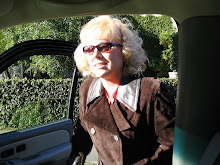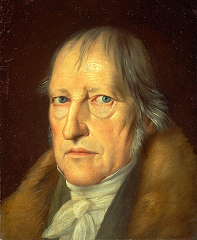What Realism Can Be
“Naive Realism is the view of the great mass of civilized humanity,” explained Oswald Kulpe’s 1895 Introduction to Philosophy. “Naïve realism” is, as Ernst Mach put it in 1886, “The philosophical point of view of the average man.” Dickinson Miller, in his 1908 article “Naive Realism: What is It?” expressed it similarly: “By naive realism we mean the attitude of the ordinary mind towards the external world.”
This is what I mean to defend, naive realism. The only problem is that so many philosophers have been persuaded by the canon to reject it, that a few of them have offered various descriptions of naive realism that make it out to be something strange and implausible. In other words, a few felt that, since so many philosophers seem to agree with Hume that “the slightest philosophy teaches us” that the vulgar realism of ordinary folks is untenable, therefore, it might be doing everybody a favor, not merely to label it “naive,” but to go even further, and offer helpful "definitions" designed to enlighten any newcomers in danger of not immediately seeing what’s wrong with it.
This has led to a situation in which one or two philosophers who believe, more firmly than some, in the actual existence of ordinary people, have nevertheless questioned whether any Naive Realists actually exist.
But if the natural realism of untutored common sense isn’t always exactly what its enemies might pretend it is, then, what is it? This is pretty easy to find out. If you go to your plumber, and insist that the existence of light rays, eyeballs, and retinas proves that chairs are perceived “indirectly,” rather than “directly,” he might say, sure, fine, whatever. Have it your way. Inwardly, he may rightly suspect you of semantic quibbling. Just don’t try telling him that you think that he cannot exist as a thing in himself independently of you, or that he’s a mere appearance, and nothing in particular apart from your mind. Nor is he liable to look kindly upon you, if you tell him that his children are “mere representations” which “exist only in thought,” or that there are “no such things” as pipe wrenches, or that the Moon is an intersubjective social construct, or that meteors and cannonballs, and even whole worlds, are actually made out of words by members of a linguistic community playing a language-game and “there is no ready-made world.”
But all this is merely negative. How can we say what naive realism is, in a more positive way? And dare we use the term “naive realism”? Fearing straw definitions of naive realism, the plumber’s partisans may be pressured to give up a beloved epithet. Should this be considered necessary by those who think it wrong in principle to dispute with other people’s “definitions,” a cue can be taken from Hume, who is to blame for so much, and, sticking with philosophy’s tradition of tagging common sense with disapproving adjectives, take up the name Vulgar Realism. This name comes from Hume’s epistemology, which convinced philosophy that only “the vulgar” could suffer under the “entirely unreasonable sentiment” which makes them “attribute a distinct continued existence to the very things they feel or see.”
In other words, Vulgar Realism is the claim that the very things you feel and see can, and often do, enjoy a distinct and continued existence, independently, apart from any mind. Or, to put the emphasis where it might do more good, we might reverse it and say: things in themselves actually existing and subsisting independently apart from the mind, often are, just as in Hume’s own words, the very things you feel and see. Hume said:
Men are carried, by a natural instinct or prepossession, to repose faith in their senses; and that, without any reasoning, or even almost before the use of reason, we always suppose an external universe, which depends not on our perception, but would exist, though we and every sensible creature were absent or annihilated.
It would be hard to find a better definition than that. Realism is the vulgar, naive belief that “the very things we feel or see”—pipe wrenches, tables, chairs, houses, trees, and flying cannonballs—comprise, just as Hume puts it, “an external universe, which depends not on our perception, but would exist, though we and every sensible creature were absent or annihilated.”
This, then, is a defense of exactly that vulgar, naive realism Hume so famously discredited as an irrational prejudice. This realism involves no particular innovations, nor a retreat from a mundane naiveté, nor is it particularly scientific, nor unscientific, nor well-articulated, nor even interesting. That’s just the point. On the contrary, what’s interesting is what has happened as a result of centuries of chronic denial of it. In other words, the claim is that there was never actually anything wrong with naive realism, and philosophy, precisely on account of continually disparaging it, has been off on a crazy wild goose chase for three hundred years.
What Realism Can’t Be
Philosophers who reject a naive, vulgar realism sometimes call themselves “anti-realists” or “idealists.” Unfortunately, sometimes they also call themselves other things, like “phenomenalists,” “pragmatists,” “irrealists,” or even “realists” with some kind of qualifying adjective like “empirical,” “scientific,” or “internal.” This can be confusing.
Originally, philosophers like George Berkeley who held that tables and chairs cannot exist outside the mind, called themselves, clearly enough, “idealists.” Unfortunately, the word “idealist” has gone out of fashion. Lately, for example, fans of Kant like to call him an “empirical realist,” rather than an idealist. Kant usually called himself an idealist, but it’s also a claim of Kant’s that his “transcendental idealism” contains a brave new creature he named “empirical realism.”
“Empirical realism,” according to Kant, holds that, even though a cannonball isn’t a mind-independent thing in itself, but “a mere appearance,” a mere “representation” which “cannot exist at all outside the mind,” still, if it seems real, if the mind experiences it as if it were external, then that is enough to call it empirically (i.e., experientially) “external,” or “empirically real.” In other words, the “empirically real” is the seemingly real; the “empirically external” is the seemingly external. As Kant explains it:
Since space is a form of that intuition we call outer…we can and must regard the beings in it as real; and the same is true of time. But this space and this time, and with them all appearances, are not in themselves things; they are nothing but representations and cannot exist at all outside our minds.
External objects (bodies) are merely appearances, hence also nothing other than a species of my representations.
Appearances are not things, but rather nothing but representations, and they cannot exist at all outside our minds.
As we have just shown that the senses never and in no manner enable us to know things in themselves, but only their appearances…we conclude that all bodies together with the space in which they are, must be considered nothing but mere representations in us, and exist nowhere but in our thoughts.
Your object is merely in your brain.
The understanding itself is the lawgiver of Nature; save through it, Nature would not exist at all.
If I remove the thinking subject, the whole corporeal world must at once vanish.
This is reminiscent of Kant’s predecessor Berkeley, who’d taken a similar position regarding ordinary objects:
With all my heart, retain the word matter, and apply it to the objects of sense, if you please, provided you do not attribute to them any subsistence distinct from their being perceived.
You talked often as if you thought I maintained the non-existence of sensible things: whereas in truth no one can be more thoroughly assured of their existence than I am.…Though indeed I deny they have any existence distinct from being perceived; or that they can exist out of all minds whatsoever.
I might as well doubt of my own being, as of the being of those things I actually see and feel.
My endeavours tend only to unite and place in a clearer light that truth, which was before shared between the vulgar and the philosophers: the former being of opinion, that those things they immediately perceive are the real things: and the latter, that the things immediately perceived are ideas which exist only in the mind. Which two notions put together, do in effect constitute the substance of what I advance.
Sensible things are all immediately perceivable; and those things which are immediately perceivable, are ideas; and these exist only in the mind.
Berkeley, of course, is the paradigmatic idealist. In other words, he’s basically the definitive case of what “realism” can’t be. Yet he took the position that he had no objection to labeling tables and chairs “material,” or “matter.” Likewise, Kant said he had little objection to calling them “empirically real,” or even “empirically external.” Just so long as it remained understood that tables and chairs cannot actually exist without the mind.
In other words, “empirical realism” bears something like the same relationship to realism, as mock turtle bears to turtle. “Empirical realism” isn’t really, as it pretends, a kind of realism, but merely a coy and ironical euphemism for a kind of anti-realism even its author called “startling.”
Representative Realism
Besides Kant’s “empirical realism,” many philosophers have believed there to be various other “sophisticated” realisms that they hoped might find a happy dwelling place somewhere between the extremes of a vulgar naivete, or a full-blown Berkeleyan idealism. One popular candidate often nominated for the fence-straddling position is “representative realism.” With its classical origins in Locke, Hobbes, and Galileo, “representative realism” is usually conceived as the idea that, for example, while a banana may look yellow, really it isn’t yellow: the yellowness isn’t in the banana, it’s in you. Colors aren’t properties of external objects, but “reside only in consciousness.”
Locke said the banana has, true enough, that banana shape, and it is, true enough, really out there in space right where you think it is. But the banana’s color isn’t really out there in the banana. As Galileo explained it:
I think that tastes, odors, colors, and so on... are no more than mere names so far as the object in which we place them is concerned, and that they reside only in the consciousness. Hence if the living creature were removed, all these qualities would be wiped away and annihilated. But since we have imposed upon them special names, distinct from those of the other and real qualities [extension, motion, etc.], mentioned previously, we wish to believe that they really exist as actually different from those. ...I think that if ears, tongues, and noses were removed, shapes and numbers and motions would remain, but not odors or tastes or sounds. ...many sensations which are supposed to be qualities residing in external objects have no real existence save in us... ...When the live body is taken away, heat becomes no more than a simple name.
As Hobbes put it:
Neither in us that are pressed, are they anything but diverse motions; (for motion produceth nothing but motion.) But their appearance to us is fancy, the same waking that dreaming. …For if those colors, and sounds, were in the bodies, or objects which cause them, they could not be severed from them as by glasses, and in echoes by reflection, we see they are; where we know the thing we see, is in one place; the appearance, in another.
In Locke’s version, there are “primary qualities,” like shape and location, which are really out there, and “secondary qualities,” like color, that aren’t. So your perceptions in some ways (primary qualities) represent or “resemble” things as they are in themselves, but in other ways (secondary qualities) they don’t. Which almost seems to suggest that if you watch a black & white television with the sound off, you’ll get a more faithful impression of things.
Although it may sound silly at first, this question about the color of things is in fact historically paradigmatic here, and it persists as a notorious dispute until this day. A traditional approach to it was once “crudely but vividly summarized” by Daniel Dennett as involving a fallacy of composition:
It seems that science has taught us that everything is some collection or other of atoms, and atoms are not colored. Hence nothing is colored; hence nothing is yellow. Shocking! Where did the yellow go? Sellars has for years been wondering where the yellow went…
Scientific Realism
Dennett was talking about Wilfrid Sellars. Sellars once said “speaking as a philosopher I am quite prepared to say that the common sense world of physical objects in Space and Time is unreal—that is, that there are no such things.” And yet he called himself a “scientific realist.” Philosophers who qualify their “realism” with the adjective scientific are sometimes concerned that a plainer realism might conflict with science. Galen Strawson, for example, felt that A. J. Ayer’s attempt to reconcile “common-sense realism” with a “scientific” view of the world “can only seem to succeed by doing violence to one of the two viewpoints, the scientific.”
Strawson identified “scientific realism” primarily with “Lockean realism.” But some follow Kant in censuring Locke’s “primary qualities” (like shape and spatial location) hardly less than his “secondary” ones (like colors). So there’s disagreement among “scientific realists.” But it’s probably fair to say that “scientific realism,” when the phrase appears in a philosophy book, typically suggests a commitment only to the actual existence of various items most at home in a physics book, e.g., atoms, molecules, electrons, photons, quarks, gravitational forces, or superstrings. Or, whatever it is that ends up being settled upon, later, when physics finally comes to an end. If it ever does.
In other words, in the eyes of some philosophers, being a realist about atoms conflicts with being a realist about cannonballs, and they therefore call themselves “scientific realists” to express a prejudice in favor of the former over the latter sort of items.
To the untrained observer, this may sound like a person who thinks there’s some kind of conflict between the actual existence of bricks and the actual existence of houses. But, however that may be, outside of the Physics department the actuality of oncoming freight trains is an easier call than the actuality of quarks. Few non-physicists are willing to bet the rent on quarks anyway. Probably this is because most people find it easier to believe in the intractable mind-independence of a medium-sized physics professor, than to have faith in whatever tiny “particles” or invisible “forces” this professor appears to endorse, judging by the seeming noises that issue forth from the supposed direction of his apparent body.
As Michael Devitt explained, “Scientific realism is about unobservable entities.” So, while the question of whether or not the theoretical entities of physics actually exist outside the theories of physics is primarily a question for physicists to worry about, (just as other specialists likewise have their own narrow “realism” debates about the reality of various theoretical entities like ADHD or the GNP), to have serious doubts about ordinary medium-sized objects like houses and trees has traditionally been the job of the Philosophy department. This is why it can be very misleading for a philosopher to label himself a “realist” merely because he grants to the pet particles of a theoretical future physicist a kind of respect he denies to his own house.
Hilary Putnam once illustrated this fact, in a funny parable about the “Scientific Realist” who seduces the Innocent Maiden. His point was that it’s bound to come as an unpleasant shock to the innocent naif, when once she finds out, as sooner or later she must, that this philosopher calling himself a “realist” may turn out to be a shameless idealist when it comes to “her good old ice cubes and chairs.” As Putnam so memorably put it, “Some will say that the lady has been had.”
Mock Realism Internalized
The weird thing is that Putnam was guilty of the very same crime preached against by his excellent parable of the Seducer. For example, while leading the opposition to realism for much of his career, he nevertheless chose to label his own philosophy “internal realism.” Putnam’s “realism” held that “there isn’t a ready-made world,” because “we have no direct access to mind-independent things,” and thus “we have no access to unconceptualized reality,” and therefore “the mind never compares an image or word with an object, but only with other images, words, beliefs, judgments, etc.” So, Putnam himself had powerfully contributed to the seductive suggestion that every philosopher was some sort of “realist,” no matter how unblushingly anti-realist their claims.
In fact, it almost started to look like there was nothing in the world but just different kinds of “realists.” There were Naive Realists (and who wants to be naive?), and then there were the Sophisticated Realists, such as the Empirical Realists, the Scientific Realists, and the Internal Realists.
But, if everybody’s a realist, no matter what, then the word realist begins to collapse, robbed of sense. Worse, those who have the naive vulgarity to flatly reject, from the get-go, the outlandish claims of Berkeley, Hume, and Kant about cannonballs residing entirely in the mind, seem denied meaningful ownership of a name.
Besides, wasn’t it the idealists who had introduced the name “realism” as a handy label for the vulgar naiveté which they meant to deny? In other words, we now seem to need a new word to do exactly the job that the old word ‘realist’ would have done happily, had it not been shamelessly appropriated by the same school that introduced it in the first place as a name for what they intended to oppose.
The vulgar and naive were left nameless, breathless, and speechless. Even philosophers eventually began to protest. As Richard Fumerton complained, “Toy soldiers aren’t soldiers and internal realism isn’t realism.” It is, as Michael Devitt agreed, “a form of anti-Realism.”
Happily, Putnam “now confesses to having subscribed to a ‘residue of idealism’ in his “Internal Realism,” which is “a label he now regards as unfortunate.”
“Direct Realism:” Straw Man, Red Herring
“It is customary,” said D. M. Armstrong, “and I think useful, to classify philosophical theories of perception as direct realist, representative (representative realist), and phenomenalist.” To the extent that this classification is customary, it constitutes an example of Austin’s complaint mentioned before that “in philosophy it’s usually all over by the bottom of page one.” The problem with Armstrong’s tripartite scheme is that it seems to imply that to defend the mundane, commonsense realism of the philosophically untutored must essentially mean defending the claim that the perception of objects like tables and chairs is “direct.”
Unfortunately, Armstrong is hardly alone. It’s easy to find other philosophers who seem to think like this, for example, Strawson, Fumerton, and Ayer on various occasions. In a more recent case, DeVries and Triplett’s work on Sellars says, while explaining what “direct realism” is, that “a direct realist” is “sometimes tendentiously referred to as a naive realist.” Of course, if you happen to be a commonsensical person unsportingly labeled naive—merely on account of your unwavering faith in the actual existence and intractable mind-independence of locomotives—this seems pretty refreshing, you know, to have somebody notice that calling you naive for that, may be tendentious. And of course it’s a chivalrous gesture, to point that out, and certainly well intentioned.
But, the trouble is, it looks like it’s suggesting that the ordinary, natural realism of untutored common sense which anti-realists have tendentiously labeled naive realism is better labeled direct realism. And that would be a problem, because calling it “direct” is even worse than calling it “naive.” Where to label it “naive” or “vulgar” is merely to indulge in mildly prejudicial adjectives, to label it “direct” is to do something worse and commit a fallacy called the Straw Man.
First of all, it’s nearly impossible to divide philosophers according to whether or not they think we can perceive tables and chairs “directly” (or “immediately”) on the one hand, versus perceiving them “indirectly” (or “mediately”) on the other. Are we supposed to imagine, for example, that “direct” realists deny the obvious intermediary role played by eyeballs and/or light in order to see tables and chairs? In other words, just how indirect does perception have to be, to be “indirect”? Do you have to go so far as to posit a full-blown chair in between yourself and an invisible, mind-independent we-know-not-what, in order to get yourself placed on the “indirect” side of the ledger? Or are mere light rays or optic nerves medium enough for mediacy? If a distant star viewed through a telescope is described as being perceived “indirectly,” is that enough to make the perception of an apple “indirect”? What if you grab the apple and take a bite out of it? What if somebody throws the apple at you, and it hits you so hard it knocks you over? What if you get hit by a bus? What if a brain surgeon pokes you in the brain with a pencil? Obviously, “directness” is, in this sense, a matter of degree.
The thing is, it’s easy to agree that a complex process is involved in sense perception, including, for example, in the case of vision, a role for light rays, retinas, lenses, rods, cones, optic nerves, and the visual cortex, at least, to say nothing of any other neural processes. And, of course, a complex situation can be divided into a number of pieces, if not completely arbitrarily, at least in more than one way. But this fact makes the question of the relative “directness” of sense perception a completely trivial one. Besides, realists and anti-realists have never really quarreled over any particular account of corneas, retinas, optic nerves, or light rays. So, viewing the realism debate like this, as if it were a dispute over how relatively “direct” the biological process of perception is, can’t be the right way to understand the issue, because people who don’t disagree about the process can’t truly be having a very meaningful dispute about how relatively direct it is, since, when it comes to the question of how relatively direct perception is, they basically agree. So, how could this really be the issue?
But the clincher here is the fact that there could hardly be a greater fan of the immediacy and directness of the visual perception of chairs than the definitive idealist, George Berkeley, yet, surely, it must be hard for anyone to get further than Berkeley from either realism or naiveté. Indeed, Kant likewise insisted that our experience of tables and chairs is “immediate,” especially since, for Kant, this “immediacy” was one of the main attractions of idealism.
In other words, it makes no sense to frame the realism/anti-realism debate as a dispute about the relative “directness” or “immediacy” of our perceptual access to tables and chairs, and neither can a naive realist be understood as a person who is necessarily concerned to establish that your visual sense-perception of tables and chairs is “direct” or “immediate.”
The question isn’t whether or not you can perceive tables and chairs “directly,” or even how directly, more or less, you can, or can’t, perceive them. The question is whether or not that chair you’re sitting on right now, however more or less “directly” or “immediately” you suppose you perceive it, is, in your opinion, a ready-made thing in itself existing, persisting and subsisting independently, outside of thought and apart from the mind. In other words, the question is whether you consider that chair, this screen you’re reading, and the ground beneath your feet, to be things in themselves which would probably not be affected too severely if every last mind in the universe were suddenly annihilated.
In truth, the deeper controversy isn’t about the relative directness of perception. It’s a dispute about things like the mind-independence, substantiality, knowability, color, subsistence, meaning, reference, priority, objectivity, relativity, mentality, materiality, publicity, externality, identity, subjectivity and social construction of your chair. It’s about questions like whether you are in the room, or the room is in you. It’s about whether and how two different persons can perceive the same chair. It’s about what it might mean to say that gold could have existed in the world without any minds to notice that gold, or name it. It’s about the belief that there is, at bottom, finally some fact of the matter, some real objective truth, about Lizzie Borden, Alger Hiss, the grassy knoll, O.J. Simpson, Monica Lewinsky, and the planet Jupiter—some true, objective, mind-independent, external reality which just is what it is—in spite of what anybody thinks or says, and no matter what the meaning of ‘is’ is.
The Irrelevance of Representationalism
What’s the upshot of all this for representationalism? What if somebody says that we don’t “directly” perceive the world because instead what we perceive “directly” or “immediately” are “representations?” After all, not only Kant, but a lot of other philosophers say this, or things apparently like this, though in the proposition as it stands they might substitute, in the place of the term “representations,” another word like “percepts,” “qualia,” “ideas,” “appearances,” “impressions,” “presentations,” “sense-contents,” or “sense-data.”
But what are these things? Here we enter into a perilous morass. Charles Taylor argued that “the sense datum is an impossible entity.” Many if not most would probably agree that it’s at least notoriously unclear what elusive terms like “representation,” “sense-datum,” and “sense-quale” refer to. For some philosophers, it seems such words denote private mental entities, and are in some sense the furniture of the mind, while for others they can be rather mind-independent. Alternatively, they can serve as a relation or bridge, which straddles the divide between mind and world. Some, however, wish to eliminate the middleman, and therefore simply identify “representations” with ordinary tables and chairs. In the usage of other philosophers, the reference is not to tables and chairs, but perhaps to something like light rays and sound waves. For some they might be flavors and colors. Or the electrical impulses that travel along the pathways of the human nervous system.
The intended reference may even be to what (if anything) gets doubled when you cross your eyes or hear an echo. Strange as this may sound, one of the most traditional positions is that a “sense-datum” is a weird creature comprising only the visible surfaces of all the objects comprised in a single glance, so that, for example, it would not include the back side, or the red innards, of an uncut watermelon.
As DeVries and Triplett find themselves concluding, “the basic idea of sense-data…is quite neutral, taking no stand about the nature of sense-data.”
Are they mental entities? Are they particular individual things, or are they events? Are they to be located within the person, perhaps as physical states of sensory organs or neurophysiological interactions between those organs and the brain? Can they be, at least in the case of successful or veridical perception, ordinary physical objects?
It seems the confusion only gets worse over time, as new terms are introduced in an effort to escape the old. Is a “sense-content” the same thing as a “representation”? Are “qualia” the same as “impressions?” Are “presentations” also “percepts?” The ambiguity remains. If we say “colors are sensations,” does that mean that the word ‘red’ merely refers to a state of mind? Or does it refer to electromagnetic radiation within a particular range of wavelengths, or to a persistent tendency of an external object to reflect sunlight at noon on Earth within a given range, or a persistent tendency to stimulate a particular type of retinal cone cell in normal humans? When you look at those famous drawings of the Necker cube and the duck-rabbit, is there a change—or a continuity—in the “sense-datum” when the interpretive flip is performed?
The fact that no two philosophers seem to be able to agree on how to interpret this stuff has driven some to despair. Daniel Dennett threw in the towel:
When your kite string gets snarled up, in principle it can be unsnarled, especially if you’re patient and analytic. But there’s a point beyond which principle lapses and practicality triumphs. Some snarls should just be abandoned. Go get a new kite string. It’s actually cheaper in the end than the labor it would take to salvage the old one, and you get your kite airborne again sooner. That’s how it is, in my opinion, with the philosophical topic of qualia, a tormented snarl of increasingly convoluted and bizarre thought experiments, jargon, in-jokes, allusions to putative refutations, “received” results that should be returned to sender, and a bounty of other sidetrackers and time wasters.
Happily, those involved in the debate between realism and anti-realism can just cut to the chase. For us, the only thing that really matters about the untamed animals in any representationalist menagerie (call them what you will) is basically just two things: first, can they exist independently of us, outside the mind, and secondly, are things like trees and cannonballs supposed to be nothing but. It’s basically answering these two questions “no” and “yes,” respectively, that offends common sense. Since it’s tough to avoid making the answer to the first question (mind-independent?) seem to be “no” by definition, it’s typically the second question (trees nothing but?) that separates the sheep from the goats.
In other words, while it’s hard to object to the claim that we can perceive an oncoming freight train only by means of data we have gathered by means of our senses, it’s a whole other thing to start claiming that an oncoming freight train is nothing other than a bundle of sense data, or that when we say “oncoming freight train” we, by those words, cannot possibly mean, or refer to, anything more substantial than a swarm of sensations, a congeries of perceptions, a mental conception, a modification of our sensibility, a state of mind, or a move in a language game whose purpose is simply to make people jump.
So, the representationalist’s creatures, while very hazardous, do not necessarily lead to anti-realism, if handled with extreme caution. Barry Maund, for example, proposes an approach, which, he hopes, can reconcile a reformed representationalism with “natural realism.”
The right way to present the representative thesis is to say that the perceiver does not perceive physical objects except by being aware of intermediaries. One does not perceive the intermediaries at all.
Richard Fumerton had offered similar advice:
If I were a sense-datum theorist, I would no doubt insist that one not speak of perceiving sense-data. Certainly, on the view I am defending, it would be a mistake to speak of perceiving anything but a physical object and its properties.
The overall lesson here is that we need to view the handling of representationalist reifications as a technical sideshow. The debate between realism and anti-realism isn’t ultimately a disagreement about the actual existence, outside our theories, of “sense-data” or “mental representations.” It’s a disagreement about the actual existence, outside our theories, of rocks and trees.
Again, the question isn’t whether or not you can perceive rocks and trees directly, or even how relatively directly, more or less, you can, or can’t, perceive them. The question is whether or not you believe that water and gold and rocks and trees, however more or less “directly” or “immediately” you want to say you perceive them, can be things in themselves existing and subsisting independently of us, things which would still exist and be what they are and little bothered if no mind had ever evolved on Earth or anywhere else.














